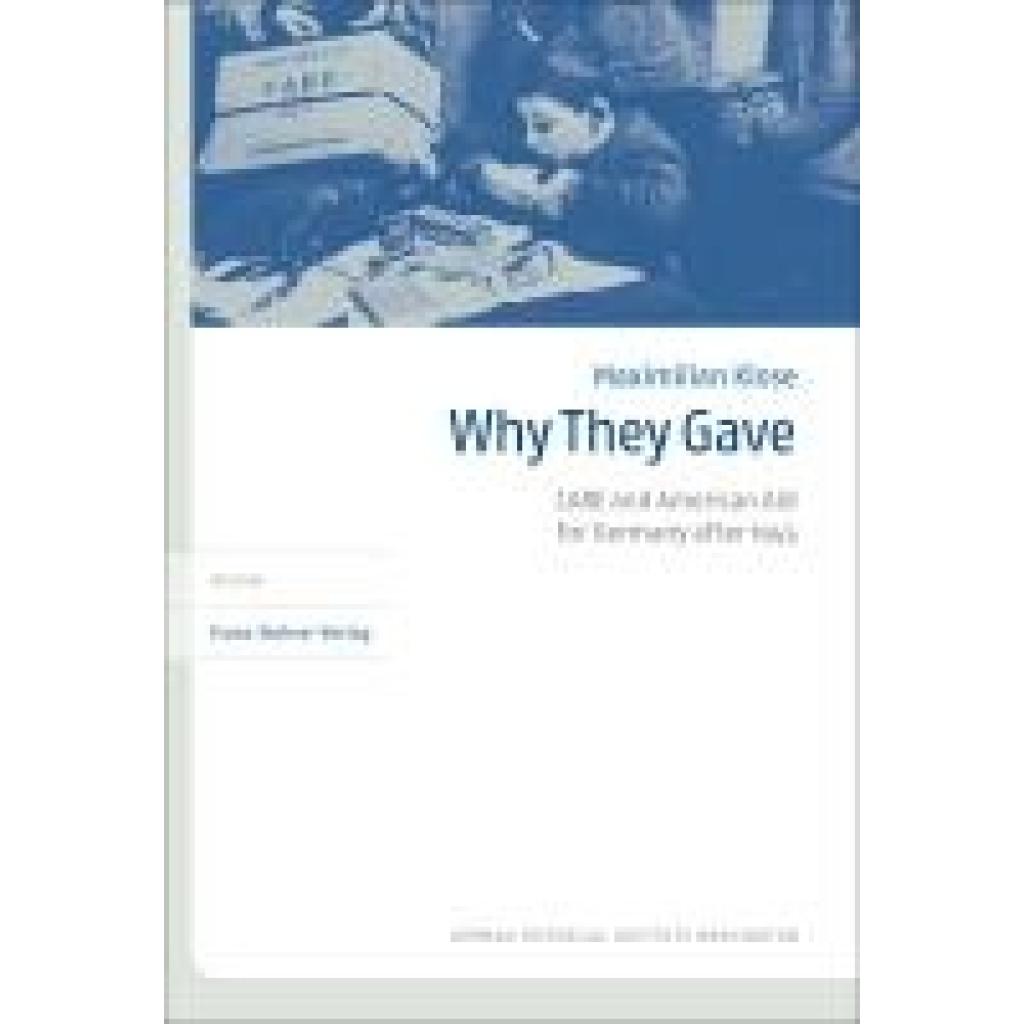Hersteller: -
Hersteller-ArtNr. (MPN): -
ASIN: 3515136533
What motivates people to give to those in need? How do their actions reflect the historical
moment in which they occur? Founded in 1945 the Cooperative for American Remittances to Europe
(CARE) allowed U.S. citizens to send humanitarian aid to friends family and strangers
overseas. Germany was the most popular destination for CARE packages with numbers exceeding
those of all other European destinations combined. Maximilian Klose examines why Americans were
more likely to give aid to their recently defeated enemies than to their allies or to the
victims of Nazi aggression. Embedding a diverse selection of case studies in the social
cultural and political debates of the early postwar era the study finds that these acts of
giving were much more than altruistic deeds. In fact donors used humanitarianism for their own
purposes. Some gave to people who reflected their own worldview and sense of importance or who
could strategically advance their power on either side of the Atlantic. Others supported causes
they considered essential to the progress of German-American relations in the early Cold War.
In all cases humanitarianism was at least as much about the donor as it was about the
recipient. "In his deeply researched book Maximilian Klose tells a fresh and fascinating
history of humanitarian giving. Examining the multiplicity of motivations that led individual
Americans to help feed the German people after the Second World War his book paints a complex
and intimate portrait of both aid donors and aid recipients. With an eye toward agency and
emotions Klose shows how ordinary people shaped foreign relations at a pivotal moment of world
history."Julia F. Irwin T. Harry Williams Professor of History Louisiana State University
author of Catastrophic Diplomacy: US Foreign Disaster Assistance in the American Century
"Maximilian Klose's well-written book on CARE is a very welcome addition to existing literature
on humanitarian relief exceeding in significance by far the immediate confines of its case. By
putting the question of "why" people were motived to provide aid at the heart of his
meticulously researched study Klose adds both substance and nuance to our understanding of the
forces at play in an age of ever more "complex humanitarian emergencies."Daniel Roger Maul
University of Oslo author of The Politics of Service: American Quakers and the Emergence of
International Relief 1917-1945 Winner of the 2023 Franz Steiner Prize in Transatlantic
History and the Dissertation Prize awarded by the German Historical Association's Working Group
on International History
Barcode:
QR-Code:
Sie sind Shopbetreiber? Listen Sie ganz einfach Ihre Produkte hier bei uns im Portal >>>



